Homa participated in the Balance Seminar on the 4-year since Fundão dam collapsed, in Mariana
One of the researchers of the Centre, Felipe Fayer Mansoldo, participated in the event held on October 31st and November 1st in the city of Governador Valadares, Minas Gerais. The organization of the Seminar involved several partner entities, such as CRDH/UFJF-GV, the Núcleo de Agroecologia – NAGÔ/UFJF–GV, GEPSA/UFOP, PoEMAS/UFJF, Organon/UFES, in addition to Homa/UFJF.
The two days of the event were planned to held workshops of the Technical Assistances during the day. Representatives of such organizations had the chance to share their experiences and challenges related to the work done alongside the people affected in the actuation regions. The second day had the participation of representatives of the Fundo Brasil de Direitos Humanos, that demonstrated how the mapping of the affected territory was made, as well as the elaboration of the working plans related to its associated territory and the public calling process of the Programa Rio Doce for the qualification and choice of technical assistances. The contracting theme and the methodological coordination on the actuation of technical assistance were also addressed, in compliance with TAC-Governança.
According to the representatives of the Fundo Brasil, the contracts will be firmed and the accounting model will take as base the actuation of the already existing technical assistances. Some organizations showed their concerns in relation to the limits of the governance model and to the risk of the TAC clauses being manipulated to serve the business interest. However, it is consensus that the right to independent technical assistance is fundamental to the fight of the ones affected by the effective redress of the damage caused by environmental crime. For this purpose, it is necessary to ensure the access of the technical assistance to Technical Chambers and to the Interfederative Committee, for the today’s lack of resources hinder the following of decisions of those organizations, and are often made without dialogue with those who are actually in the territories.
On the 31st of October, the roundtable 1 (“Análise de conjuntura”) was held by the Professor Luciana Tasse (UFJF-GV) and had the participation of the Professor Bruno Milanez (PoEMAS/UFJF), Joceli Andreoli, of the Movimento dos Atingidos por Barragens (MAB), Luiz Paulo Guimarães de Siqueira, of the Movimento pela Soberania Popular na Mineração (MAM), and André Sperling, Prosecutor (MPMG). Joceli and Luiz Paulo, representatives of the social movements, emphasized the need for a new mining model, with the popular protagonism, following strict standards of respect for the environment and safety and health at work, as well as due protection for communities threatened by dams. André Sperling, representative of MPMG, highlighted the importance of the actuation of technical assistances to build the awareness of the society and the high risks of new dam collapses in our State. In turn, the Professor Milanez emphasized that the fight in defense of the affected is permanent, and questioned the Brazilian mineral model based on dependence, on big dams projects and on the expansion toward indigenous territory and traditional communities. Ultimately, the professor Luciana Tasse highlighted the importance of the event in Governador Valadares and thanked the partnership of the organizations, and started the debate.
In turn, the Roundtable 2 (“Rejeito, cotidiano e comunidade”) was mediated by the professor Karine Carneiro (UFOP) and integrated by Mirela Lino (affected of Ponte do Gama/MG), José Pavuna Neto (affected of Tumiritinga/MG) and by the Professor Judith Marshall (York University). One of the affected, Mirela, highlighted the vulnerability of those affected and questioned the negotiation process conducted with the company, since the victims are always obliged to cede. The affected José Pavuna highlighted the link to the Cachoeirinha rural settlement, whose community changed all its habits since the contamination of the Rio Doce waters, and expressed his anguish toward the damage reparation that happens unevenly between the farmers, without any transparency and criteria by the Fundação Renova. The professor Judith Marshall corporately addressed the case of rupture of the Mount Polley dam in Canada, and the rupture of Fundão tailings mine in Mariana. In turn, the Professor Karine Carneiro presented the “Plano Popular de Reassentamento Coletivo de Gesteira”, (Popular Gesteira Resettlement Plan) an important initiative that aims to rebuild the habits of the community from its community and public spaces.
On the 1st of November, the Roundtable (“Mineração e Direitos Humanos”) was mediated by the Professor Tatiana Ribeiro (UFOP) and integrated by Simone Maria da Silva (affected of Barra Longa/MG), Sebastião Martins Barbosa (representative of the Movimento dos Pequenos Agricultores – MPA) and Luciana Marques Coutinho, Presecutor of the Labor Prosecution Office. The prosecutor Luciana Marques Coutinho, of the MPT-MG, highlighted the rights to a decent work and its violations in the context of environmental crimes in Mariana, especially in Brumadinho, where more than one hundred Vale workers were killed in the rupture of the Córrego do Feijão dam. Sebastião, of the MPA, highlighted the water contamination problem and its consequences to the health of the residents, and also the impacts on the income of ribeirinhos communities and fishermen of the affected territory, and even in the milk and other products quality that are commercialized by the small farmers. Simone, one of the affected, of the Gesteira (Barra Longa/MG) community, showed the consequences of the contamination of the basin of Rio Doce in relation to the health of the residents, emphasizing that the company makes it extremely difficult the acknowledgment that the tailing mud is responsible for the illness, requiring several medical evidences to grant the emergency card. At last, the professor Tatiana Ribeiro highlighted the importance of Simone’s speech, that by presenting its reality, she expressed the reality of all of the affected.
Finally, the Roundtable 4 (“Balanço das primeiras Assessorias Técnicas das Pessoas Atingidas”) was mediated by the Professor Cristina Losekann (UFES) and integrated by Ston Figueiredo (representative of the Cáritas – technical assistance of affected by Mariana), Verônica Medeiros (representative of AEDAS – technical assistance of the affected by Barra Longa) and Domingos Araújo (representative of Rosa Fortini – technical assistance of the affected by Rio Doce, Santa Cruz do Escalvado and Chopotó. Veronica, of AEDAS, presented the work of the technical assistances as a dispute, that must foment the organization of the affected in the territory, respecting the culture, the way of organization of the affected and their protagonism. Ston, of Cáritas, stressed that the Fundação Renova discourse tries to blame the technical assistances by the delay in the financial compensation to be received by the affected, and that the massive publicity of the company creates the image for the ordinary citizen that the process of reparation of the violations were resolved, which is far from being the reality. Domingos, of Rosa Fortini, emphasized that the compensatory process by the hands of Renova is a bureaucratic system, cost-reducers, that only serves the interests of the violating company.
In the ending speech, the professor Cristina Losekann highlighted the importance of the Seminar. The event is an annual initiative that aims to provide a place for meetings, complaints and debates between the affected, the academics, the technical assistances, the social movements, and institutions of the justice system, with the objective of reinforce the collective fighting for Human Rights.
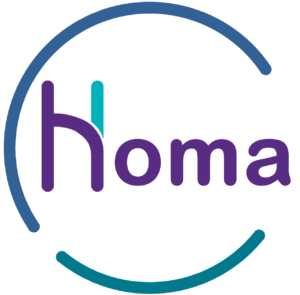
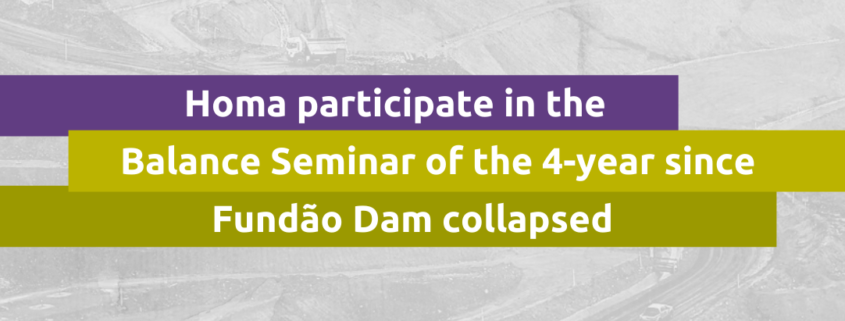
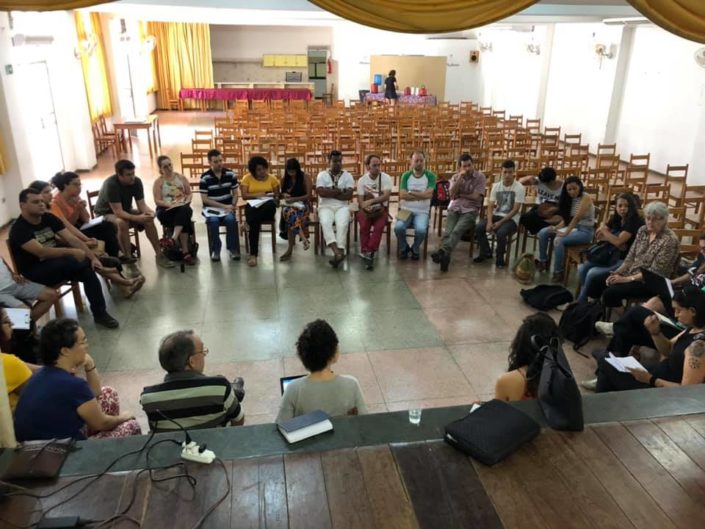
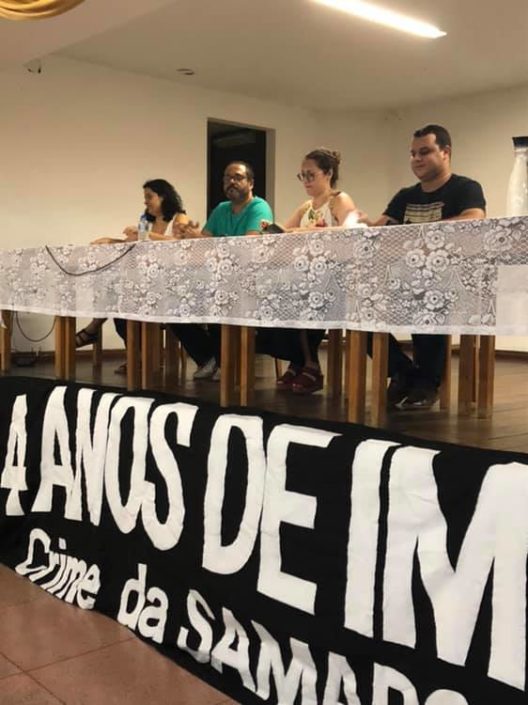
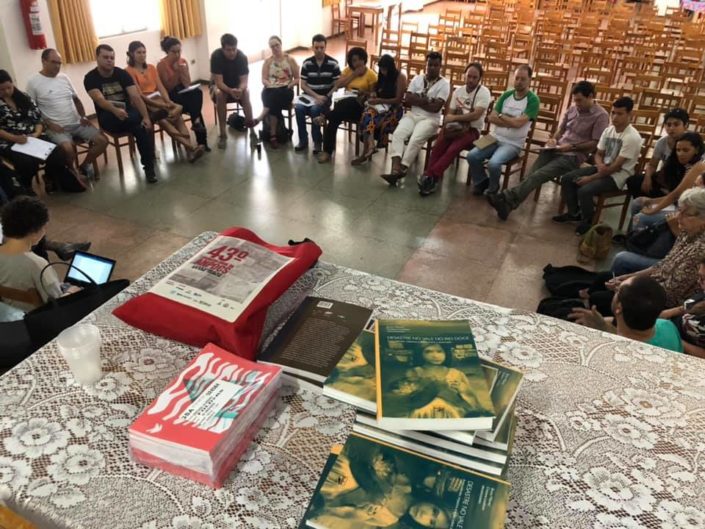
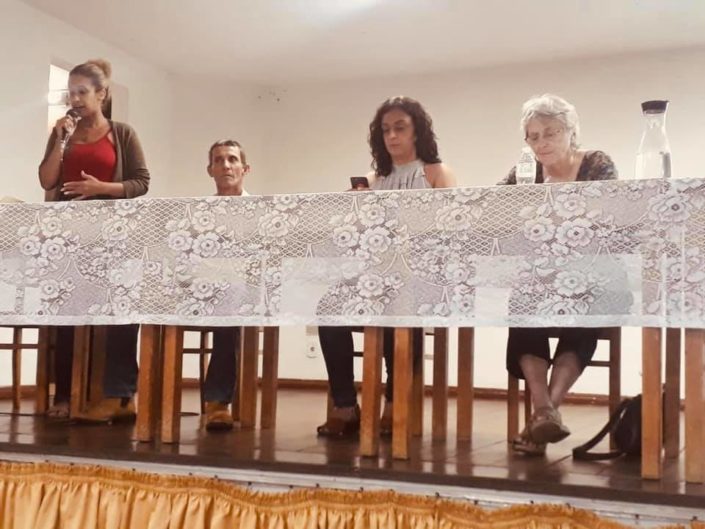
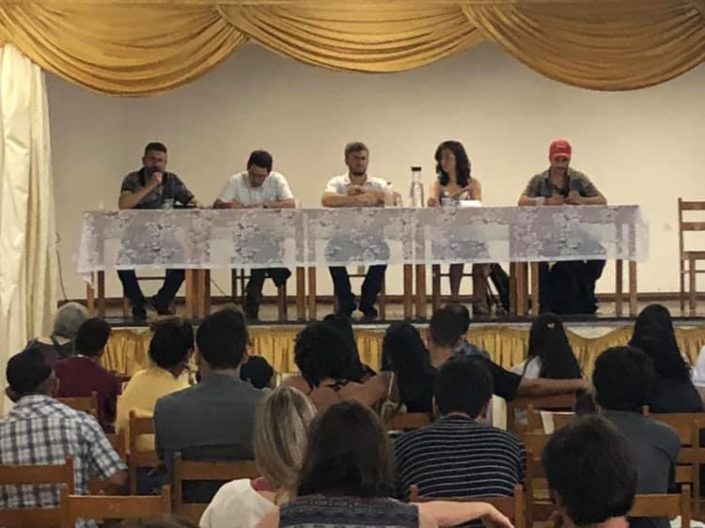
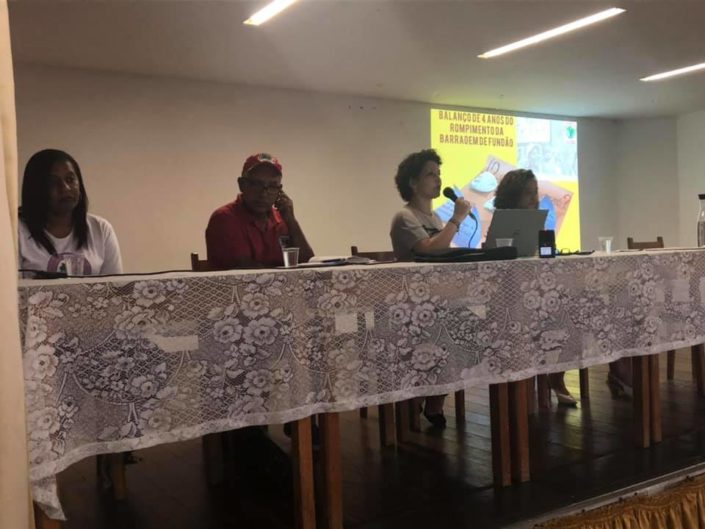
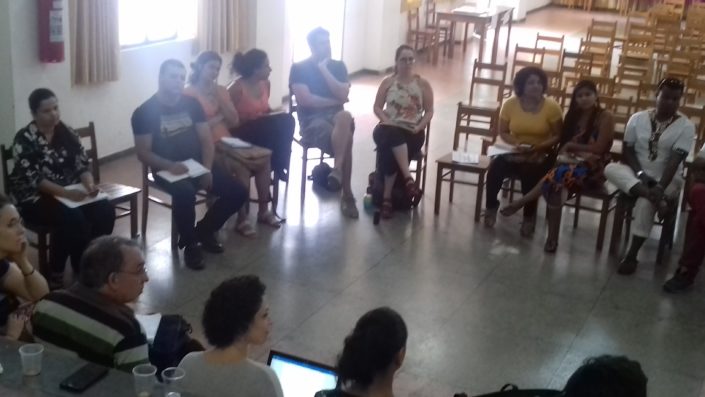
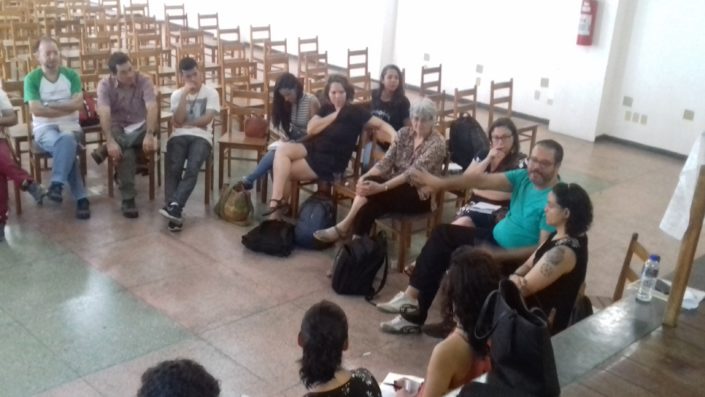
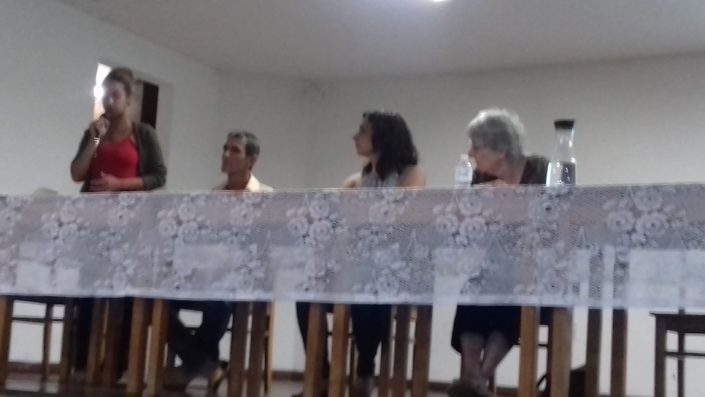
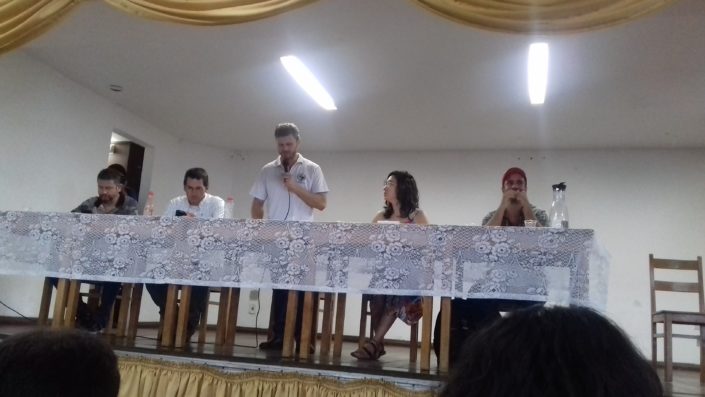
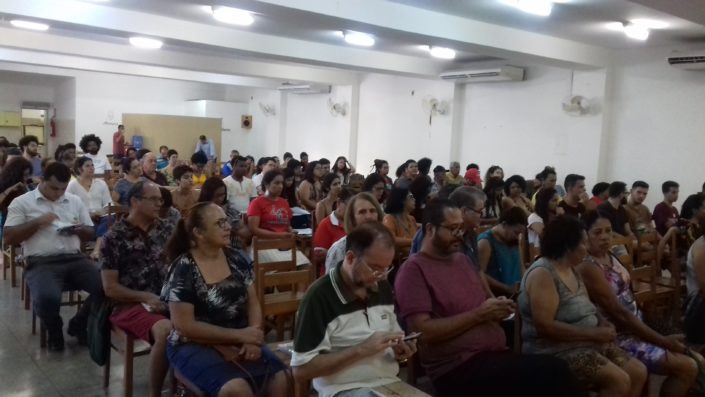
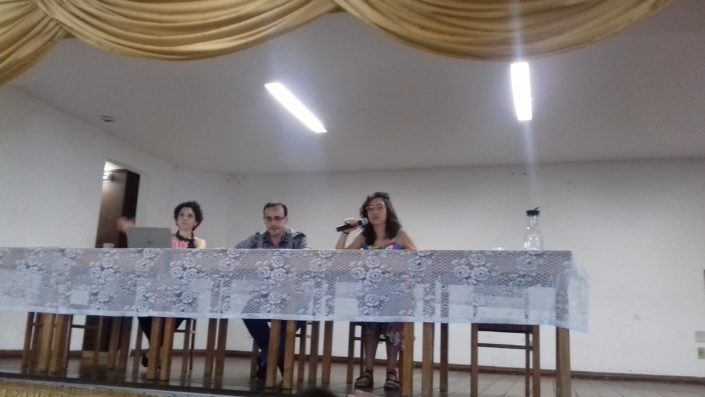
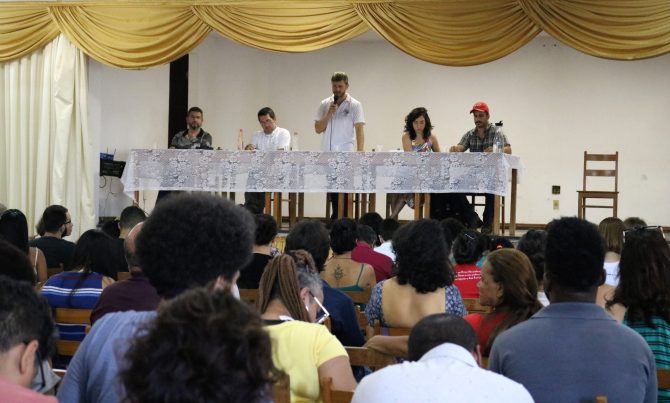
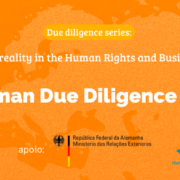
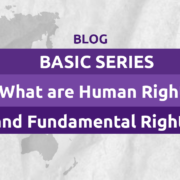
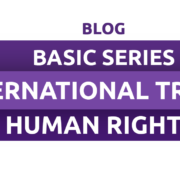
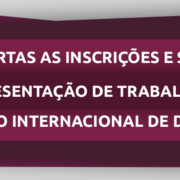
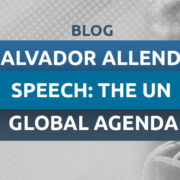
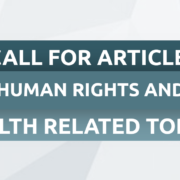
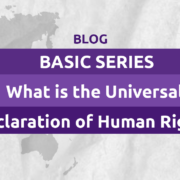
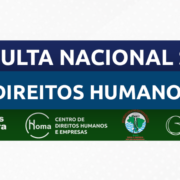


Leave a Reply
Want to join the discussion?Feel free to contribute!